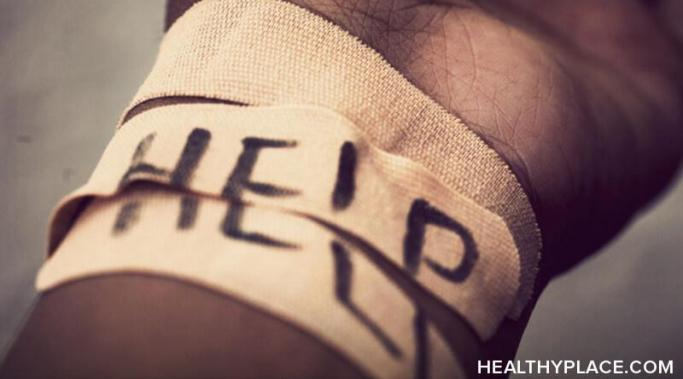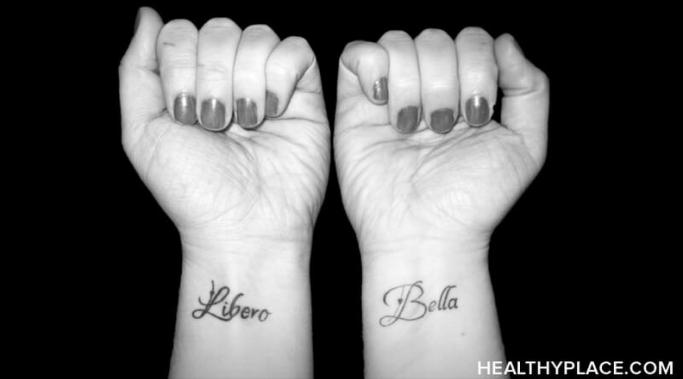How can you tell if your self-harm is getting worse? Self-injury, like most mental health disorders, exists on a spectrum. Some people only ever engage in relatively minor acts of self-harm, while for others, the situation may become more serious. If you suspect your self-harm is getting worse, it is important to not only recognize that truth but also take steps now to keep yourself from sliding down a dangerous, slippery slope.
Self-Injury Treatment
Journaling can be a wonderful tool to use whenever you feel like your life is falling apart. The act of writing something down on paper works like magic. Your mind calms down, your emotions become more transparent, and you gain control over your self-harm thoughts.
Mindfulness activities like the R.A.I.N. method is not an instant cure for self-injury, but with practice, it can help you control your self-harm urges. Think of it as a yoga exercise for your mind -- if you show up regularly, you will get stronger, more resilient, and more in control of your feelings.
We all have that little mean voice inside our heads, constantly nagging us and pointing out all our mistakes. Self-harm often comes with negative self-talk, but it's worth remembering that you are not your thoughts, you are just listening to them. You can choose to ignore them -- or even create a dialogue between you and your self-injury voice.
Are tattoos the same as self-mutilation? Let's face it, tattoos do hurt, and so does self-harm. But does it mean they are the same? Having done both, I can assure you they are unlike each other, even if both are associated with some level of pain.
Self-harm is an intimate act. Recovery, too, is a highly personal journey in many ways. But is healing from self-harm possible on your own?
You can regulate your emotions and better respond to distress through dialectical behavior therapy (DBT) skills training. Dialectical behavior therapy emotional regulation skills have proven to be especially effective in people struggling with self-harm and other self-destructive, maladaptive behavior.
Using mindfulness for self-harm is a dialectical behavior therapy (DBT) skill. Dialectical behavior therapy is an effective type of treatment used for issues of self-harm. Originally developed to treat borderline personality disorder (BPD), it is currently used to treat a variety of mental illnesses such as eating disorders and chronic depression. Dialectical behavior therapy targets emotion dysregulation to help patients cope with the severity of their distress.
Distress tolerance skills are coping skills taught in dialectical behavior therapy (DBT). Dialectical behavior therapy is a type of treatment that teaches patients how to regulate their emotions and respond to distress through skills training. Distress tolerance skills have proved to be especially effective in people struggling with self-harm and other self-destructive, maladaptive behavior.
Dialectical behavior therapy (DBT) is a type of treatment that teaches patients how to regulate their emotions and respond to distress through skills training. It has proved to be especially effective in people struggling with self-harm and other self-destructive, maladaptive behavior.









